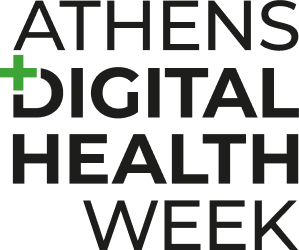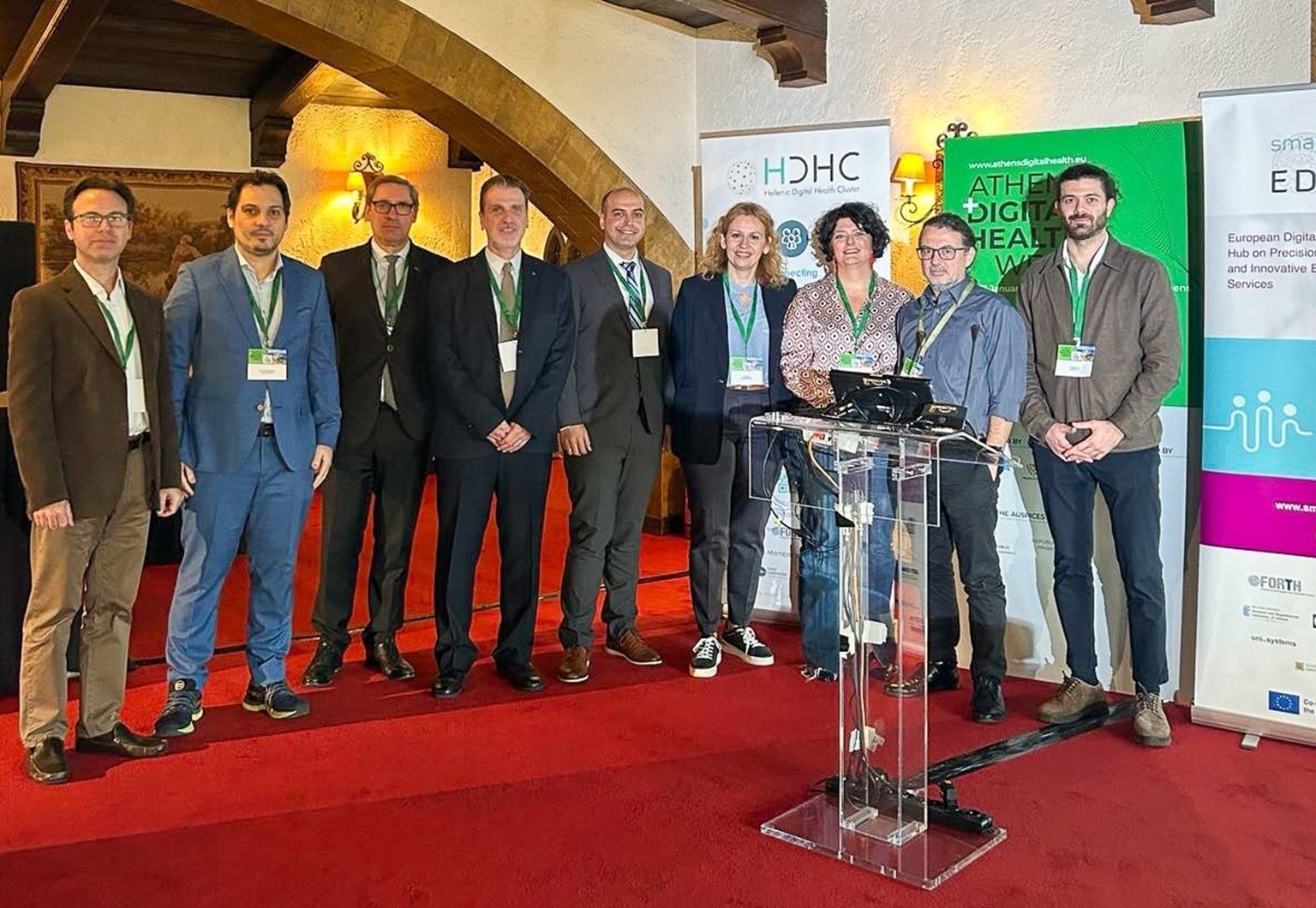A dedicated session aiming to identify the challenges and opportunities for SMEs and startups in the digital health sector was held during Athens Digital Health Week 2025. Organized by the smartHEALTH European Digital Innovation Hub and the Hellenic Digital Health Cluster (HDHC), the roundtable discussion, titled “SMEs and Startups – Success Stories and Pathways to Growth” brought together key players from industry, government, and academia to examine strategies for fostering innovation and scaling businesses.
Moderated by Dr. Maria Makridaki, Business Development & Innovation Manager, Center for eHealth Applications and Services, FORTH, the session provided valuable insights into the evolving landscape of digital health entrepreneurship in Greece and Europe.
Dr. Athanasios Valiakos, Head of Digital strategy Department, of the Hellenic Ministry of Digital Governance, emphasized the pressing need for SMEs to embrace digital transformation and increase their investment in research and development. He pointed out that while the state provides substantial support for R&D initiatives, private sector investment must rise to bridge the funding gap. He also underscored the role of digital literacy in enabling small businesses to adapt and thrive in an increasingly competitive market.
The discussion also highlighted the impact of clusters and European Digital Innovation Hubs (EDIHs) in fostering collaboration and growth. Professor Dimitrios Plexousakis, coordinator of smartHEALTH EDIH, and Dimitrios G. Katehakis, HDHC Director, showcased how smartHEALTH EDIH and the HDHC provide essential networking opportunities, insights into funding mechanisms, and pathways to commercialization. By connecting startups and SMEs with the right resources and partners, these ecosystems play a vital role in accelerating innovation.
Industry representatives provided firsthand accounts of the challenges faced by SMEs in the Greek market. Steven Gavas from SOFMEDICA Life-saving Innovation, Stamatiki Kritas from the Council of European BioRegions and Hellenic Biocluster (HBio), George Loudos from BIOEMTECH, George Nikolaidis from Ergobyte Informatics S.A., and Thanos Vidakis from AINIGMA Technologies shared their experiences navigating a landscape filled with both opportunities and obstacles. One of the most pressing concerns was the difficulty of scaling up businesses, with many startups struggling to secure investments and take the necessary risks for growth.
A recurring theme in the discussion was the gap between academia and entrepreneurship. Many startups, particularly spin-offs from research institutions, face significant challenges when transitioning from the laboratory to the commercial market. Participants noted that while Greece has a strong research community, more needs to be done to translate scientific innovation into viable business models. The regulatory environment, combined with the prevalence of project-based funding, also presents hurdles for companies looking to achieve long-term sustainability.
Visibility and collaboration emerged as crucial factors in overcoming these challenges. Increased exposure through industry clusters, targeted networking events, and strategic partnerships can help SMEs connect with investors and gain traction in the market. Speakers also stressed the importance of developing national strategies that prioritize end-user needs, facilitating the creation of solutions that are not only innovative but also practical and scalable.
The roundtable concluded with a call to action for greater public-private partnerships, improved support for research translation, and the establishment of testing laboratories to help SMEs validate their technologies before market entry. As Greece continues to position itself as a leader in digital health innovation, ensuring a supportive ecosystem for startups and SMEs will be essential for sustainable growth.
The discussion underscored the critical role of collaboration, investment, and knowledge exchange in shaping the future of the digital health sector. With the right strategies in place, SMEs and startups can play a transformative role in driving healthcare innovation, enhancing patient care, and contributing to economic development. For Greece and the wider European digital health ecosystem, the path forward requires a collective effort. By strengthening the connections between research, industry, and policy, and by ensuring that SMEs have the tools they need to succeed, the vision of a thriving digital health sector can become a reality.





